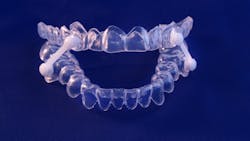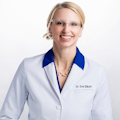Sleep medicine: Why you should be involved with it
I asked 100 dentists why they had not yet incorporated sleep medicine into their dental practices and their top five responses are listed below. The American Dental Association published its official policy statement in 2017: “Dentists are encouraged to screen patients for SRBD (sleep-related breathing disorders) as part of a comprehensive medical and dental history to recognize symptoms such as … obesity, retrognathia, or hypertension …”1
So, why don’t more dentists screen their patients for sleep apnea? While I have heard every excuse in the book, the most common answers are probably some of the ones that came immediately to mind for you, as well.
Sleep apnea dentistry: What you need to know
Calculating the ROI of dental sleep medicine
5 reasons why dentists are NOT screening for sleep apnea
Medical insurance
Yes, I will agree that medical billing can be cumbersome and frustrating, but what has two thumbs and can reassure you that it is possible? This girl! You do not have to bill medical insurance to help the patients who are in your practice today. Just like we sell clear aligner cases or veneer cases without the aid of insurance, patients can pay for sleep apnea appliances fee-for-service.
It’s boring
Many dentists think that because it’s not surgery and because it doesn’t involve a handpiece, it’s not exciting. But if you are a nerd like me and love putting the pieces of the puzzle together and helping patients connect the dots as to why they are not feeling the best version of themselves, you will love sleep medicine. Taking a bunch of data from their sleep study, connecting symptoms and anatomy, and telling them their story and offering a treatment solution is my favorite part. Doing a buccal pit filling is certainly satisfying but changing someone’s life? Priceless.
I’m busy as it is
True, there is a lot of restorative dentistry to be done. But what are you busy with? I will tell you that this is my greatest weakness. We are so busy at the office with hygiene, fillings, crowns, extractions, etc., that it’s hard for me to implement a new service. But as soon as I realized that if I set aside production time for something important, I can make up for it in the long run. Plus, 90% of a sleep apnea program can be delegated. Dentists, you don’t have to do it.
Side effects or bite changes
I’m not sure how dental school brainwashed us so well, but for some reason we all think that class I canine guidance can cure cancer. I am here to tell you that a bite change is a potential side effect. We don’t promote them, and we try to prevent them, but they can happen. A bite change that most patients don’t even notice versus oxygen? I’m going with oxygen every time.
I’m out of excuses
We as health-care professionals should all be screening our patients for sleep apnea.
If more than 20% of the population (or 30 million adult Americans) suffer from sleep apnea and approximately 80% remain undiagnosed, then that means there are patients walking into our practices every day who need our help. I would go so far as to say that you don’t even need a physician referring to you to have a successful sleep program. The number of undiagnosed cases of sleep apnea continues on an upward trajectory.
Even more staggering is how many dentists there are and how so few are screening or treating their patients for sleep issues. The ADA website reports there are more than 200,000 dentists licensed in the US. Further, 2017 findings from Frost & Sullivan say that 100 dentists account for 34% of oral appliance therapy treatment,2 and only 75 dentists have established practices focused solely on dental sleep medicine.
An Inside Dentistry survey discovered that 38% of dentists surveyed offer sleep treatment, but only 5% treated more than five cases per month.3 So let’s reframe this and look at the top five reasons why you should treat sleep apnea in your dental practice.
More about dental sleep medicine ... Is the buzz with dental sleep medicine loud enough?
5 reasons why you SHOULD treat sleep apnea in your practice
- Your patients need it, and the medical world is missing it.
- Your team can do the heavy lifting.
- There are hundreds and hundreds of patients within your own practice right now.
- You’ll gain professional satisfaction.
- Sleep medicine is profitable.
Editor’s note: This article originally appeared in Perio-Implant Advisory, a chairside resource for dentists and hygienists that focuses on periodontal- and implant-related issues. Read more articles and subscribe to the newsletter.
References
- The role of dentistry in the treatment of sleep-related breathing disorders. American Dental Association Council on Dental Practice. 2017. https://www.ada.org/-/media/project/ada-organization/ada/ada-org/files/resources/research/the-role-of-dentistry-in-sleep-related-breathing-disorders.pdf
- The price of a good night’s sleep: insights into the US oral appliance market. Frost & Sullivan. January 26, 2015. Updated 2017. https://store.frost.com/the-price-of-a-good-night-s-sleep-insights-into-the-us-oral-appliance-market.html
- Mazda J. Trends in dentistry. Inside Dentistry. 2019;15(1). https://www.aegisdentalnetwork.com/id/2019/01/trends-in-dentistry
About the Author
Erin Elliott, DDS
Erin Elliott, DDS, grew up in southern California but went away to a small NAIA school in western New York where she played collegiate soccer and graduated summa cum laude from Houghton College. After graduating from Creighton Dental School in 2003, she settled in north Idaho to begin her general dentistry career. She has a special interest in dental sleep medicine and has lectured extensively on this topic. Dr. Elliott is an active member of various dental associations, including the American Academy of Sleep Medicine and American Academy of Dental Sleep Medicine. She is the past president and a diplomate of the American Sleep and Breathing Academy. She teaches a two-day sleep apnea implementation course with 3D Dentists and Tarun Agarwal, DDS.

